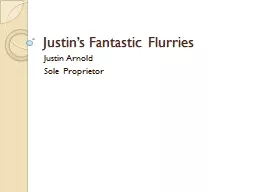PPT-FANTASTIC PIECES AND WHERE TO FIND THEM
Author : trish-goza | Published Date : 2017-07-16
CHARACTERISTICS OF GOOD LITERATURE Quality of the Material It has a theme that connects the reader or listener to common human experiences such as love anger
Presentation Embed Code
Download Presentation
Download Presentation The PPT/PDF document "FANTASTIC PIECES AND WHERE TO FIND THEM" is the property of its rightful owner. Permission is granted to download and print the materials on this website for personal, non-commercial use only, and to display it on your personal computer provided you do not modify the materials and that you retain all copyright notices contained in the materials. By downloading content from our website, you accept the terms of this agreement.
FANTASTIC PIECES AND WHERE TO FIND THEM: Transcript
Download Rules Of Document
"FANTASTIC PIECES AND WHERE TO FIND THEM"The content belongs to its owner. You may download and print it for personal use, without modification, and keep all copyright notices. By downloading, you agree to these terms.
Related Documents














